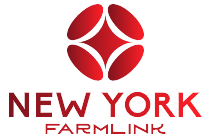The freelance life or an artistic career can be incredibly rewarding. You set your own schedule, choose the projects you work on, and have the flexibility to express your creativity. But managing finances as a freelancer Read More
or artist presents unique challenges. Incomes can be feast or famine, and there’s no employer withholding taxes or contributing to a retirement plan.
The good news? With some proactive planning, you can thrive financially as a freelancer or artist. This guide will equip you with the essential tools and strategies to navigate your income fluctuations, build a safety net, and plan for a secure future. Are you looking for mt4 white label solution? Go to the previously talked about website.
What is a budget?
A budget is the foundation of any solid financial plan. It helps you track your income and expenses, identify spending areas, and allocate resources effectively. Here’s how to create a budget specifically tailored for your freelance or artistic income:
- Track Your Income: For a few months, meticulously record all your income – project fees, commissions, grants, etc. This will help you understand your average monthly earnings and identify seasonal trends.
- Categorize Expenses: List all your regular expenses, including rent/mortgage, utilities, groceries, and business-related costs (software, marketing materials). Don’t forget to include irregular expenses like car repairs or annual subscriptions.
- Allocate Funds: Use a budgeting method that works for you. The 50/30/20 rule (50% needs, 30% wants, 20% savings) is a popular option. Allocate a specific portion of your income for each expense category.If you’re looking to learn more about mam forex, just go to the above site.
Savings Strategies for Freelancers and Artists
Building a steady savings habit is crucial for freelancers and artists. Here are some tips to get you started:
- Emergency Fund: Aim to save 3-6 months of living expenses to cover unexpected costs like medical bills or periods of low income.
- Tax Savings Accounts: Explore tax-advantaged savings options like IRAs (Individual Retirement Accounts) or solo 401(k)s to save for retirement while reducing your taxable income.
- Short-Term Goals: Set aside money for specific short-term goals like equipment upgrades or professional development courses.
Taming the Tax Beast:
Taxes can be a complex beast for freelancers and artists. Here’s what you need to keep in mind:
- Estimated Tax Payments: Since freelance income isn’t subject to withholding, you’ll need to make estimated tax payments throughout the year to avoid penalties. Consult with a tax professional to determine the appropriate amount.
- Record Keeping Maintain meticulous records of your income and business expenses. This will come in handy during tax season and ensure you can maximize deductions.
- Seek Professional Help: Consider consulting with a tax professional who specializes in self-employed individuals. They can guide you through the filing process and ensure you’re taking advantage of all available deductions. Browse the following site, if you are searching for additional information regarding demo account trading.
Planning for a Secure Retirement:
Retirement planning might seem a distant concern, but starting early is key. Here are some options for freelancers and artists:
- Individual Retirement Accounts (IRAs): These accounts offer tax benefits, allowing your contributions to grow tax-deferred until withdrawal.
- Solo 401(k)s: These accounts offer even greater contribution limits than traditional IRAs, making them a powerful tool for long-term savings.
- Investing: Consider investing a portion of your income in a diversified portfolio. This can help your savings grow exponentially over time. Visit the following site, if you’re searching for more information concerning trader calculator.
Conclusion
Financial planning as a freelancer or artist requires discipline and strategic thinking. However, by implementing these strategies and developing healthy financial habits, you can achieve financial stability and peace of mind. Remember, financial planning is an ongoing process. Regularly review your budget, adjust your savings goals, and adapt your plans as your income and career evolve. With dedication and the right tools, you can secure a financially secure future and continue to flourish in your freelance or artistic career.




